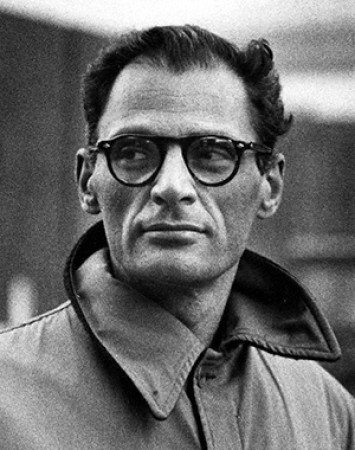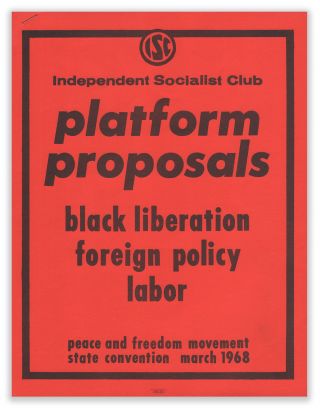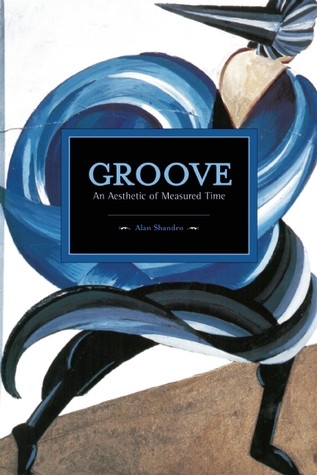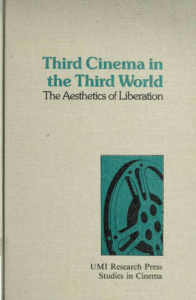
In 1649, a pamphlet titled Tyranipocrit Discovered was published in Rotterdam. Fusing the terms “tyrant” and “hypocrite,” the anonymous author called for an end to economic, religious, and political oppression in England.

In 1649, a pamphlet titled Tyranipocrit Discovered was published in Rotterdam. Fusing the terms “tyrant” and “hypocrite,” the anonymous author called for an end to economic, religious, and political oppression in England.

The deaths of Rosa Luxemburg and Karl Liebknecht have haunted the imagination of the left for a century. Joe Sabatini reviews a recent publication exposing the events of their deaths, Klaus Gietinger’s The Murder of Rosa Luxemburg, as well as providing an introduction to some of the literary works inspired by the events of 15 January 1919.

Bill Fletcher, Jr. The Man Who Fell From the Sky. Hard Ball Press, $15, trade paperback, 350 pp.
“Race” as a biological category differentiating humans has been a spurious and discredited marker for more than a century. From Franz Boas’ early pioneering studies of the Inuit to Barbara Fields’ contemporary savaging of race-based ideology, we should all understand that humans are one race, end of discussion!
 Seventy-two years after his initial Broadway success with All My Sons and 14 years after his death, Arthur Miller continues to cast a long shadow over theater in the United States. His plays are staples of high school drama clubs, college and university theater departments and regional theaters around the country, and his best-known works – Death of a Salesman, The Crucible, All My Sons, A View From the Bridge and After the Fall – have been revived many times on Broadway.
Seventy-two years after his initial Broadway success with All My Sons and 14 years after his death, Arthur Miller continues to cast a long shadow over theater in the United States. His plays are staples of high school drama clubs, college and university theater departments and regional theaters around the country, and his best-known works – Death of a Salesman, The Crucible, All My Sons, A View From the Bridge and After the Fall – have been revived many times on Broadway.

In The Communist Manifesto, Marx and Engels referred to the state as “the executive committee of the ruling class.” Reflecting the collective capitalist interest in maintaining its accumulation process, capable of forging compromises among competing sectors of its own and other classes, this committee was also meant to enforce legal norms, contracts, and other rules of the game.
 The Obamas’ deal with Netflix is the culmination of a worrisome turn in contemporary documentary.
The Obamas’ deal with Netflix is the culmination of a worrisome turn in contemporary documentary.
Since the announcement in May of Former President Barack and First Lady Michelle Obama’s multi-year production deal to produce narrative and documentary films and series with Netflix, there has been remarkably little conversation about it. Admittedly, there isn’t any work to evaluate just yet, but the news does raise enormously important questions in and of itself.

Berkeley (California) was probably a unique political-cultural milieu in the U.S. in the 1960s, both before and after 1968. It was part of the larger political-cultural scene of the San Francisco Bay Area from 1945 onward. The Bay Area at the time was a relative backwater in the U.S., compared to the East coast. The area had, however, seen one of the biggest general strikes of the 1930s, when the Communist Party-influenced ILWU (International Longshore Workers Union) helped bring San Francisco to a halt in 1934, including mass street battles with the police.

Much analysis of modern music focuses on lyrical content, but how can we understand modern musical forms? What relation do they have to the capitalist world in which they’ve developed? To answer these questions Kate Bradley interviewed Mark Abel, author of Groove: An Aesthetic of Measured Time.

Many would like to believe that this American period of rampant national-conservatism is nothing more than a short stay in Republican purgatory. It is a reassuring idea that in a few years, as today’s progressive youth becomes a large part of the electorate, the United States will become a shining example of tolerant and progressive prosperity. Just as neo-conservatives envision a global American hegemony built on capitalism and military strength, some progressives have adopted a belief that the United States is destined to reach national political moksha with strong welfare, a prosperous middle class, and minority rights; the nasty racists and homophobes, the “deplorables”, will soon be outnumbered so vastly in the face of common-sense political ideology that the right will simply cease to exist. Unfortunately, this prophecy has proven a myth for millennials—and the nascent Generation Z doesn’t appear to have better prospects.

Joanne Landy (1941-2017) and Thomas Harrison (1948-) became socialists as teenagers and have remained involved in the democratic left ever since. They were active in the student protest movement at the University of California at Berkeley in the 1960s, where they met and became close friends and collaborators. During the 1970s, they became increasingly interested in the issue of labor rights in Central and Eastern Europe, and they worked to link democratic and social justice struggles in the Eastern Bloc with social movements in the United States, the West, and the Third World. Until Joanne Landy’s death in October 2017, they were co-directors of the Campaign for Peace and Democracy (CPD), which was founded in 1982. Initially, the organization was called the Campaign for Peace and Democracy/East and West, but with the end of the Cold War the title was shortened.
Why the United States has not developed a permanent socialist movement has perplexed activists and theorists for more than a century. Paul Le Blanc takes up that query as an activist who wants to see an anti-capitalism mass movement take shape in twenty-first century America. To that end, he investigates some of the moments when the possibility of a significant left presence in the United States seemed at hand. He focuses on what made those movements viable and what thwarted their long-term success. The volume’s fourteen essays were written over a period of thirty years, from 1986 to 2015.

This season’s roundup of nonfiction comics includes self-published and small-press titles as well as noteworthy releases from major trade publishers. Topics covered range from consumer capitalism and imprisoned anarchists to Trinidadian social history and the war in Syria. Each of these titles deploys a distinctive approach to the challenge of folding political themes into visual narrative. In different ways, these books suggest that the forward march of political cartooning continues unabated.

Sitting alone in my room watching videos on YouTube, hearing sounds from across the hall of my roommate watching Netflix, the obvious point occurs to me that a key element of the demonic genius of late capitalism is enforcing a crushing passiveness on the populace.

When I was a union rep, one of my most challenging assignments was assisting a Communications Workers of America (CWA) bargaining unit at a Boston-area telemarketing firm. Most CWA members in New England had call center jobs at the phone company, with good pensions, health insurance, and full-time salaries. As service reps, they fielded in-coming calls from customers with problems, questions, or new orders to place. In contrast, the telemarketing staff only interacted with the public, on behalf of various clients, via out-bound calling. Like the workers depicted in Boots Riley’s hilarious new film, Sorry to Bother You, they made cold calls to people who did not want to bothered, at dinner time or anytime, with a pitch for a new product, service, or donation to a political cause.

While accepting an Honorary Oscar this past November, the great film director Charles Burnett spent some time reflecting on his formative years as a film student at UCLA. It was there that he and his colleagues not only learned . . .

The closing of the era when comic art specialists, not people with PhDs, wrote the outstanding and recognized works on individual artists and genres may have arrived as recently as only a few years ago. Careful biographies of artistic giants, household names (in their own eras, at least) or famed only within the field, Al Capp or Will Elder, have continued to be written by people who could rightly be called “fans”—if the title did not seem insulting. Rather than university presses, Fantagraphics or the comics series at Abrams would be a typical outlet. With each year that passes and with each swelling enrollment in a college course, the scene shifts.

A civil society emerges, mainly, due to citizens’ need to actively involve themselves in the public sphere in order to address processes that impact their daily lives and affect their interests. At the heart of civil society, various social actors, with sometimes remarkable differences, group themselves around common issues that affect or interest all of them. Therefore, civil society is plural, characterized by the spontaneous organization of citizens and based on logics of autonomy, solidarity, and representation of specific identities; it is aimed at addressing collective demands, exploring solutions to issues that affect a given community, and having an impact in the public sphere.

The Work of Art in the Age of Mechanical Reproduction
Walter Benjamin was one of the great analysts of liberal capitalism during a time when its days seemed numbered and fascism was ascendant across Europe. Much of his work is taken up with looking at how the cultural products and processes characteristic of a civilization are reflective of the inner psychic and spiritual tensions roiling beneath the surface of hegemonic ideologies.